Ford builds its European industrial strategy on a dual axis
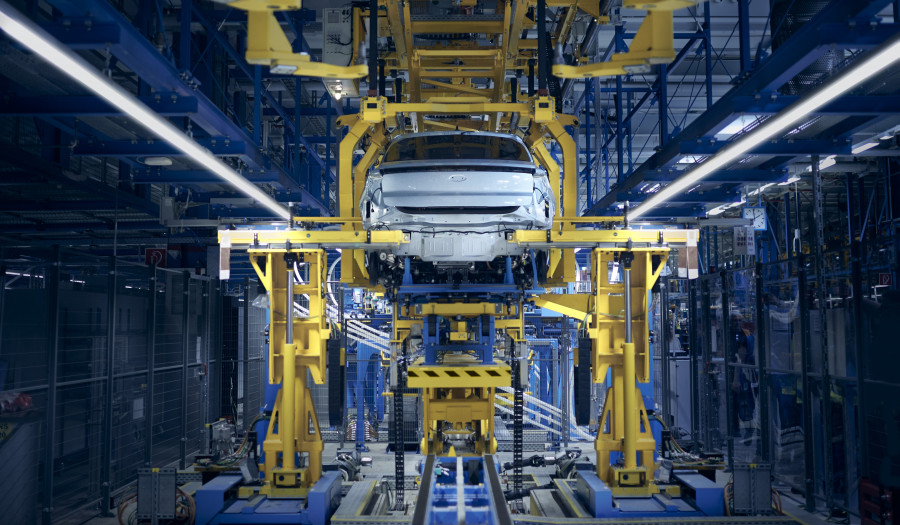
In parallel with its progress in North America, Ford has designed a strategy of industrial and commercial projection of electrified vehicles in Europe. From a geostrategic point of view, AutoRevista differentiates between two industrial axes on the continent. On the one hand, the western axis with the Germany-Spain pairing, and on the other hand, the eastern axis with the Turkey-Romania pairing.
In the first quarter of 2022, Ford announced what was shaping up to be a major step towards an all-electric future for the carmaker in Europe. The company created a new global division - Ford Model e- focused on the design, production and distribution of electric and connected vehicles. Together with Ford Pro, the division focused on the commercial vehicle business, Model e is already defining Ford's future in Europe. Jim Farley, Ford president and CEO. He said: "Ford Model e allows us to move at start-up speed to build electric vehicles that deliver Ford's unique connectivity services that are built with Ford's own level of engineering and safety.
Ford expects its annual sales of electric vehicles in Europe to exceed 600,000 units by 2026 and also reaffirms its commitment to achieve six percent EBIT in Europe by 2023. The acceleration in Europe supports Ford's goal of selling more than two million electric vehicles globally by 2026 and achieving a global company EBIT margin of 10 per cent.
"Our move to an all-electric future is an absolute necessity for Ford to meet the mobility needs of a changing Europe," said Stuart Rowley, president of Ford of Europe. The company announced in spring 2022 that it is targeting zero emissions for all vehicle sales and carbon neutrality across its European manufacturing, logistics and supplier footprint by 2035.
After lighting the electric flame with the Mustang Mach-E and Mach-E GT from the other side of the Atlantic last year, the American carmaker is building a strategy in Europe that, according to AutoRevista's analysis, rests on two axes: the western one with the Germany (in full swing)-Spain pairing, and the eastern one, Turkey (already active)-Romania.
A new era for Ford in Europe
Ford is already putting together its first and seemingly main pillar of its electric strategy on the western flank. Last June, it opened the Electric Vehicle Centre in Cologne, Germany, a technologically advanced production facility that will build Ford's next-generation electric vehicles for millions of European customers, the company says. Designed to be highly efficient and spanning 125 hectares, the new Ford Electric Vehicle Centre is equipped with an all-new production line, battery assembly area and state-of-the-art automation systems, enabling annual production of more than 250,000 electric vehicles, with the first flagship being the Explorer sports crossover, to be followed by a second model in 2024.
With both products, the production volume of electric vehicles at the German plant should increase to 1.2 million in the space of six years. The investment in the electric passenger vehicles to be built in Cologne is expected to amount to $2 billion. The investment includes a new battery assembly plant that is scheduled to start operations in 2024. The Cologne Electric Vehicle Centre is Ford's first carbon-neutral plant worldwide, marking a further step in the company's commitment to achieve carbon neutrality in Europe across all of its facilities, logistics operations and direct suppliers by 2035.
"The start-up of the Cologne Electric Vehicle Centre is the beginning of a new era of emission-free manufacturing and electric vehicles in Europe," said Ford CEO Bill Ford. "This plant will be one of the most efficient and environmentally responsible in the industry today. I am delighted to continue working towards a zero-emission future for our children and grandchildren”.
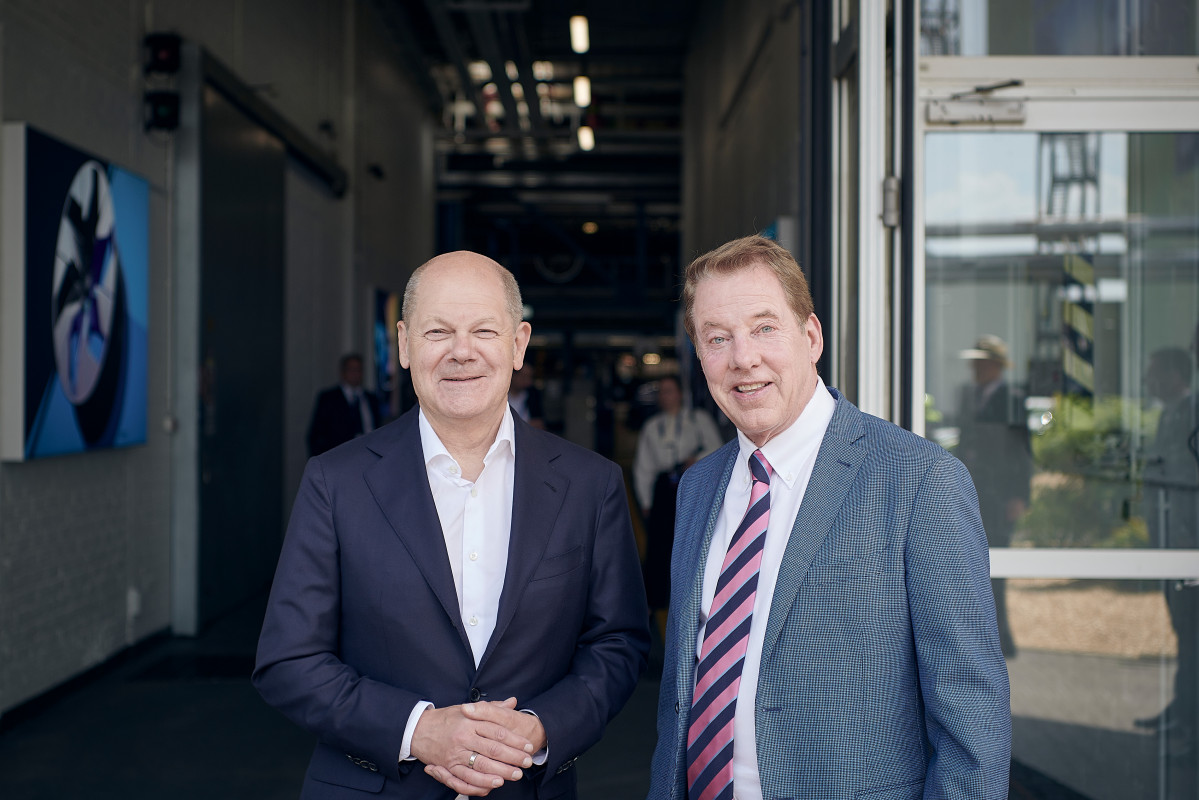
The Chancellor of the Federal Republic of Germany, Olaf Scholz, said: "The Electric Vehicle Centre represents a new beginning and is the largest investment in Ford's history at the Cologne plant. This is good news for Cologne, for the German automotive industry, for electric mobility and for the new era".
“The Cologne Electric Vehicle Centre marks the beginning of a new era for Ford in Europe," said Martin Sander, general manager of Ford Model e in Europe. "We are redefining automotive manufacturing anew, implementing advanced technologies to build fully connected, software-defined vehicles that meet our customers' demand for zero-emission mobility."
Among the key innovations at the Cologne Electric Vehicle Centre are digital applications that connect machines, vehicles and workers. In addition, the implementation of self-learning machines, autonomous transport systems and real-time big data management work holistically to optimise the efficiency of production processes and evolve over time, always ensuring high quality.
Ford stresses that it is taking steps to support, not replace, human excellence. New cognitive and collaborative robots and augmented reality solutions will support its employees and increase efficiency and data exchange with other plants to share experiences in real time. To achieve carbon neutrality at the Cologne plant, Ford will reduce the plant's energy use and emissions by installing new processes, machinery and technologies. All electricity and natural gas required to run the facility is carbon neutral, as it is 100% certified renewable electricity and biomethane.
The heat required to heat the facilities and processes is carbon neutral, as the local energy supplier will offset the corresponding emissions from the assembly plant on Ford's behalf. The heat is generated by an external power plant and a waste incineration plant and supplied to Ford via a dedicated steam network. The local energy supplier plans to reduce its operational emissions from this heat supply by approximately 60% by 2026, and to eliminate them completely by 2035. When fully operational, the Ford Electric Vehicle Centre in Cologne will be independently certified as a carbon neutral plant. This certification will be audited periodically and renewed through the purchase of high-quality carbon offsets for any remaining emissions.
The technological upgrade of the Ford Electric Vehicle Centre in Cologne is accompanied by an ecological enhancement of biodiversity and the ecological balance of the existing green space at the factory. The measures installed include new perennial vegetation, the replacement of ecologically poor grassy areas with wildflower meadows and spaces for insects, as well as habitats for bats and birds.
"The carbon-neutral Cologne Electric Vehicle Centre is a showcase that should lead the automotive industry in the transformation from traditional car manufacturing to electric vehicle production," Sander concluded. "The facility and processes have been designed by our engineers to maximise efficiency and minimise environmental impact, helping Ford to become carbon neutral in Europe and supporting our global decarbonisation plan.
What about Spain?
The second lung of the western axis is in the preparation phase. About a year ago, Ford of Europe announced the selection of its plant in Valencia, Spain, as a reference for assembling vehicles based on Ford's own next-generation electric vehicle architecture. This is good news for a plant that, after demonstrating outstanding flexibility, enormous product diversity and experience in hybrids, has been going through a complicated situation in recent years with a significant drop in workload. In spite of this, the Almussafes factory has continued to make headway with one of the most popular models among European customers, the hybrid Kuga. A range that has been extended in April this year with the Graphite Tech Edition that incorporates, for the first time in the range of this model, Ford's Matter Grey exterior colour option and, for the sake of greater comfort, includes the SUV's most popular advanced driving assistance systems as standard.

At the end of 2022, the Spanish plant demonstrated its solvency at the first edition of Ford R&Day, an event in collaboration with the Valencian Regional Government's Department of Sustainable Economy, Productive Sectors, Trade and Employment. Companies, entrepreneurs, universities, suppliers, press, administration, associations and researchers gathered at the City of Arts and Sciences in Valencia.
169 R&D actions have been presented for 2022 at the Ford plant in Almussafes, Valencia, some of them developed together with different suppliers from the automotive sector. The scalability of these projects is being studied, together with Ford Motor Company's global innovation teams, in order to implement them in the rest of the company's plants worldwide. It is worth highlighting the projects of advanced applications of artificial vision and machine learning to improve the production process of the automotive lines; as well as the projects of advanced collaborative robotics, in which the cobot is able to select from a variety of parts, those suitable for the process.
The day's proceedings covered more than 150 projects in different presentations, such as 'Ford Valencia, a success story: R&D strategy as a competitive factor', with the presence of Paula Carsí, Innovation Manager, Ford of Europe.Throughout the meeting, the seven fundamental pillars of innovation and development for this technological ecosystem were discussed, which are: - Autonomous Guided Vehicles.- Artificial Vision. - 3D Printing. - Advanced Robotics. - Data Analytics. - Digitalization. - Cybersecurity & Connectivity.
In addition, in early 2023, Ford Valencia commissioned a new solar power plant at its Almussafes facility in Valencia, Spain. By 2035, Ford is committed to making all the vehicles it sells in Europe zero-emission electric, and is aiming for neutrality across its European carbon footprint in facilities, logistics and suppliers.
The photovoltaic area, which converts solar energy into electricity, is located in a non-productive area of the Valencian plant comprising two solar panel zones capable of producing the energy equivalent to the operation of 1,400 average households each year. The current production of around 4,641 megawatt hours per year will increase this summer by 3,762 megawatt hours per year - the equivalent of 1,100 more average households. In practice, this means that this year, Ford's Valencia plant will significantly reduce its current demand for electricity from the national grid.
With the aim of reaching 10 megawatts of peak output by 2024, Ford wants to expand the solar panel areas to other non-productive land.The feasibility of installing solar panels on the roofs of the facility's buildings in the future is also being studied. "As Ford moves towards an all-electric future and carbon neutrality throughout our production process, investing in innovations such as this new solar power plant in Valencia means the creation of self-sufficient renewable energy, making an important contribution to our goal of helping to build a better world," said Stuart Southgate, Director of Sustainable Engineering, Environment and Safety, Ford of Europe. From 1 January 2022, all electricity used at Ford's Almussafes plant will come from renewable sources, as will all electricity purchased to power Ford's manufacturing facilities across Europe.
Eastern axis
Ford confirmed more than two years ago that the next-generation Transit Custom range would include an all-electric model, as well as plug-in hybrid, mild hybrid and conventionally powered variants. The new Custom range has entered production at Ford's Otosan Kocaeli factory in Turkey in the first half of 2023. In addition, the next generation of Volkswagen's one-tonne commercial vehicle will also be produced at the Otosan plant, as part of the two manufacturers' alliance on this type of vehicle.
The Ford Otosan facility in Kocaeli was opened in 2001, and since 2004 has been Ford's world-leading plant for the production of successive generations of the Ford Transit Custom range and the two-tonne Transit. The Ford Courier range is manufactured at Ford Otosan's Yenikoy assembly plant, also located in Kocaeli. More than 100 Turkey-based suppliers supply components to the plant.
In 2021, Ali Koç, president of Ford Otosan and vice chairman of the board of directors of Koç Holding, said: "We are transforming our Kocaeli factories into Turkey's first and only integrated production facility for the assembly of electric vehicles and batteries. We see this investment, which will materialise over a decade, as a strategic move for the future. I would like to thank Ford Motor Company for its confidence in Turkey and Ford Otosan, which has made this important investment possible."
Ford has also signed a non-binding Memorandum of Understanding (MOU) for a new joint venture in Turkey. Pending signature of a final agreement, the three partners plan to create one of the largest battery plants in the enlarged Europe. The joint venture would be located near Ankara and will produce NMC cells with high nickel content for assembly into battery modules. Production is expected to start in the middle of the decade with an approximate annual capacity in the range of 30 to 45 Gigawatt hours. The investment that the three partners are planning in the battery joint venture - including support from the Turkish Government - will directly benefit operators of small and large commercial vehicles across Europe, reducing energy and running costs and providing a significant contribution to CO2 reduction.
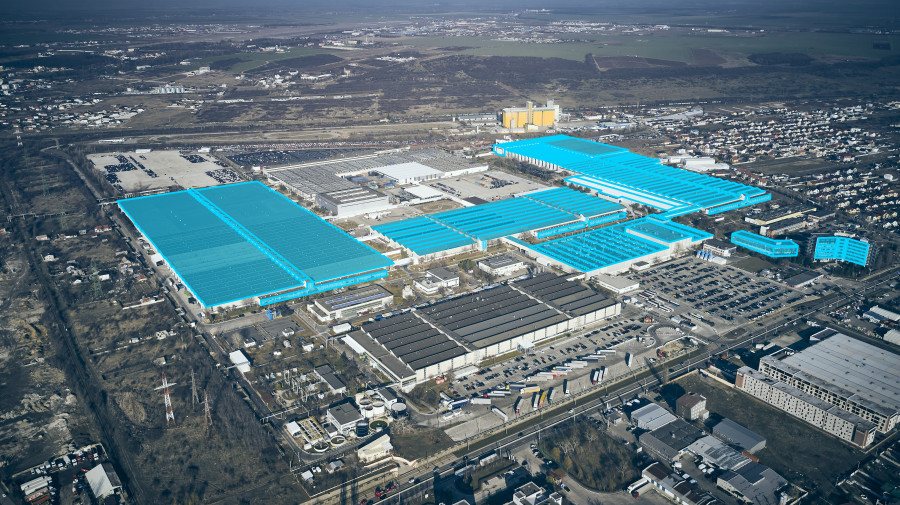
Last but not least, Ford's manufacturing plant in Craiova, Romania, will play a significant role in Europe's electric and commercial vehicle growth plans. From 2024, the production start date, European customers will be able to purchase a 100% electric version of the Ford Puma. The Puma was Ford's best-selling passenger vehicle in Europe in 2021, and the 100 percent electric Puma will appeal to a broader group of European customers when production begins in Craiova in 2024.
Additionally, the popular, completely revamped Transit Courier light commercial vehicle and the versatile Tourneo Courier will also be produced in Craiova from 2023, with all-electric versions coming to market in 2024. To further boost electric and commercial vehicle production capacity, Ford announced that Ford Otosan will assume ownership of the Craiova plant and manufacturing business, subject to regulatory approval and consultation. Ford Otosan, a joint venture between Ford Motor Company and Koç Holding, is one of the longest-running and most successful joint ventures in the global automotive industry.
"We welcome this opportunity to grow our joint venture with Koç Holding and build on this strategic collaboration to better utilise our resources and know-how in Romania," said Rowley. "Ford Craiova today is a great success story, and we believe that with Ford Otosan's experience and knowledge of electrification and commercial vehicles, it can reach a new level of achievement."
Lea este informe en castellano
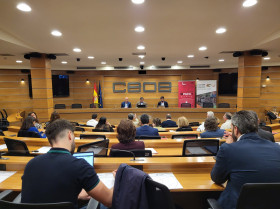
La organización del evento, del 7 al 10 de mayo en Fira de Barcelona, ha detallado el nuevo estudio en Barcelona y Madrid.
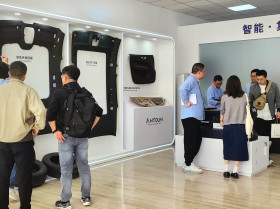
La multinacional española realiza un destacado displiegue en la muestra del 25 de abril al 4 de mayo.
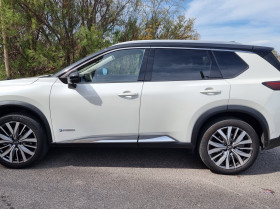
En el fascinante universo de los SUV, el Nissan X-trail emerge como un protagonista indiscutible, fusionando la versatilidad de un crossover con la robustez de un todoterreno. Esta cuarta generación del X-Trail, representa la evolución de un modelo emblemático, cimentado en años de innovación y excelencia. Texto y fotos: Eusebio Albert
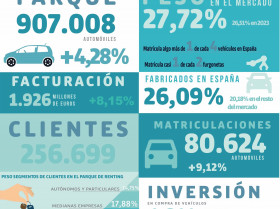
Las grandes empresas (con más de 24 vehículos) son las que más incrementan porcentualmente su parque en renting.
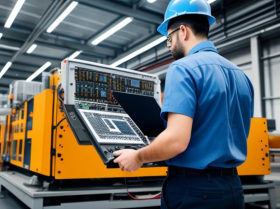
La presentación de candidaturas está abierta hasta el 17 de mayo
